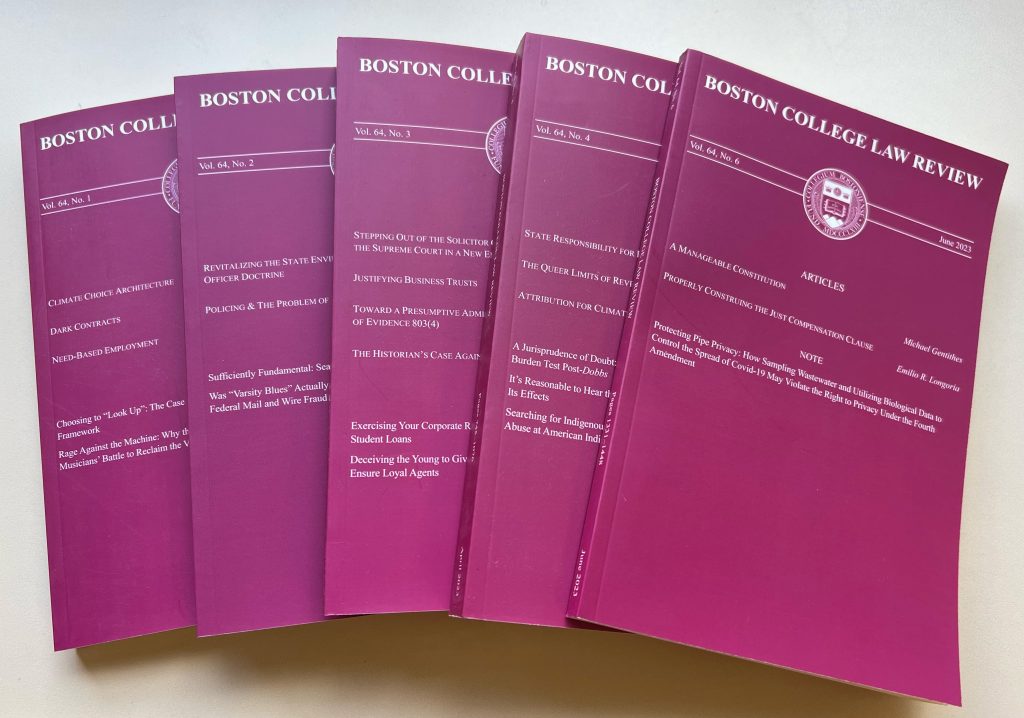Boston College Law Review rose from #25 to 16th place in the most recent Washington and Lee School of Law annual publications rankings. The ranking is based on a metric that weighs the total number of case and journal citations received by Boston College Law Review authors, alongside an “impact factor” that averages the total number of citations against the total number of articles published over the last five years. W&L derives this citation data from Westlaw’s databases.
Why the sudden shift? Overall, in a year marked by relatively poor citation and publication counts among the top 25-ranked law journals, BCLR managed to buck trends and grow its impact score year-over-year. Compared to last year, the Law Review increased its journal citations—the most important factor in W&L’s calculus—by around 200, a 17 percent increase.
That increase seems to have been driven in large part by a handful of articles that have displayed increasing or sustained interest from legal academics over the past five years. Most of the authors of these viral articles hail from law schools across the United States and abroad. Notably, however, one of the most cited Boston College Law Review articles of the last five years was written by BC Law alum (and former editor in chief) Vasundhara Prasad ’19, validating a long-standing Review policy of publishing student scholarship at the same rate as that of outside academics.
The common factor between the most popular articles has been timeliness and relevance to the hottest topics in political discourse. Some of the topics covered include mass-tort litigation against pharmaceutical companies, racial disparities in plea-bargain practices, the limits of privacy and data collection, and the use of non-disclosure agreements in relation to the #MeToo movement.
Explore more of Washington and Lee’s findings, as well as the methodology employed, at https://managementtools4.wlu.edu/LawJournals/Default.aspx.


